第60章 CHAPTER XV. The Return of the Great Vance (1)
Morris returned from Waterloo in a frame of mind that baffles description. He was a modest man; he had never conceived an overweening notion of his own powers; he knew himself unfit to write a book, turn a table napkin-ring, entertain a Christmas party with legerdemain--grapple (in short) any of those conspicuous accomplishments that are usually classed under the head of genius. He knew--he admitted--his parts to be pedestrian, but he had considered them (until quite lately) fully equal to the demands of life. And today he owned himself defeated: life had the upper hand; if there had been any means of flight or place to flee to, if the world had been so ordered that a man could leave it like a place of entertainment, Morris would have instantly resigned all further claim on its rewards and pleasures, and, with inexpressible contentment, ceased to be. As it was, one aim shone before him: he could get home. Even as the sick dog crawls under the sofa, Morris could shut the door of John Street and be alone.
The dusk was falling when he drew near this place of refuge; and the first thing that met his eyes was the figure of a man upon the step, alternately plucking at the bell-handle and pounding on the panels. The man had no hat, his clothes were hideous with filth, he had the air of a hop-picker. Yet Morris knew him; it was John.
The first impulse of flight was succeeded, in the elder brother's bosom, by the empty quiescence of despair. 'What does it matter now?' he thought, and drawing forth his latchkey ascended the steps.
John turned about; his face was ghastly with weariness and dirt and fury; and as he recognized the head of his family, he drew in a long rasping breath, and his eyes glittered.
'Open that door,' he said, standing back.
'I am going to,' said Morris, and added mentally, 'He looks like murder!'
The brothers passed into the hall, the door closed behind them; and suddenly John seized Morris by the shoulders and shook him as a terrier shakes a rat. 'You mangy little cad,' he said, 'I'd serve you right to smash your skull!' And shook him again, so that his teeth rattled and his head smote upon the wall.
'Don't be violent, Johnny,' said Morris. 'It can't do any good now.'
'Shut your mouth,' said John, 'your time's come to listen.'
He strode into the dining-room, fell into the easy-chair, and taking off one of his burst walking-shoes, nursed for a while his foot like one in agony. 'I'm lame for life,' he said. 'What is there for dinner?'
'Nothing, Johnny,' said Morris.
'Nothing? What do you mean by that?' enquired the Great Vance.
'Don't set up your chat to me!'
'I mean simply nothing,' said his brother. 'I have nothing to eat, and nothing to buy it with. I've only had a cup of tea and a sandwich all this day myself.'
'Only a sandwich?' sneered Vance. 'I suppose YOU'RE going to complain next. But you had better take care: I've had all I mean to take; and I can tell you what it is, I mean to dine and to dine well. Take your signets and sell them.'
'I can't today,' objected Morris; 'it's Sunday.'
'I tell you I'm going to dine!' cried the younger brother.
'But if it's not possible, Johnny?' pleaded the other.
'You nincompoop!' cried Vance. 'Ain't we householders? Don't they know us at that hotel where Uncle Parker used to come. Be off with you; and if you ain't back in half an hour, and if the dinner ain't good, first I'll lick you till you don't want to breathe, and then I'll go straight to the police and blow the gaff. Do you understand that, Morris Finsbury? Because if you do, you had better jump.'
The idea smiled even upon the wretched Morris, who was sick with famine. He sped upon his errand, and returned to find John still nursing his foot in the armchair.
'What would you like to drink, Johnny?' he enquired soothingly.
'Fizz,' said John. 'Some of the poppy stuff from the end bin; a bottle of the old port that Michael liked, to follow; and see and don't shake the port. And look here, light the fire--and the gas, and draw down the blinds; it's cold and it's getting dark. And then you can lay the cloth. And, I say--here, you! bring me down some clothes.'
The room looked comparatively habitable by the time the dinner came; and the dinner itself was good: strong gravy soup, fillets of sole, mutton chops and tomato sauce, roast beef done rare with roast potatoes, cabinet pudding, a piece of Chester cheese, and some early celery: a meal uncompromisingly British, but supporting.
'Thank God!' said John, his nostrils sniffing wide, surprised by joy into the unwonted formality of grace. 'Now I'm going to take this chair with my back to the fire--there's been a strong frost these two last nights, and I can't get it out of my bones; the celery will be just the ticket--I'm going to sit here, and you are going to stand there, Morris Finsbury, and play butler.'
'But, Johnny, I'm so hungry myself,' pleaded Morris.
'You can have what I leave,' said Vance. 'You're just beginning to pay your score, my daisy; I owe you one-pound-ten; don't you rouse the British lion!' There was something indescribably menacing in the face and voice of the Great Vance as he uttered these words, at which the soul of Morris withered. 'There!' resumed the feaster, 'give us a glass of the fizz to start with.
Gravy soup! And I thought I didn't like gravy soup! Do you know how I got here?' he asked, with another explosion of wrath.
'No, Johnny; how could I?' said the obsequious Morris.